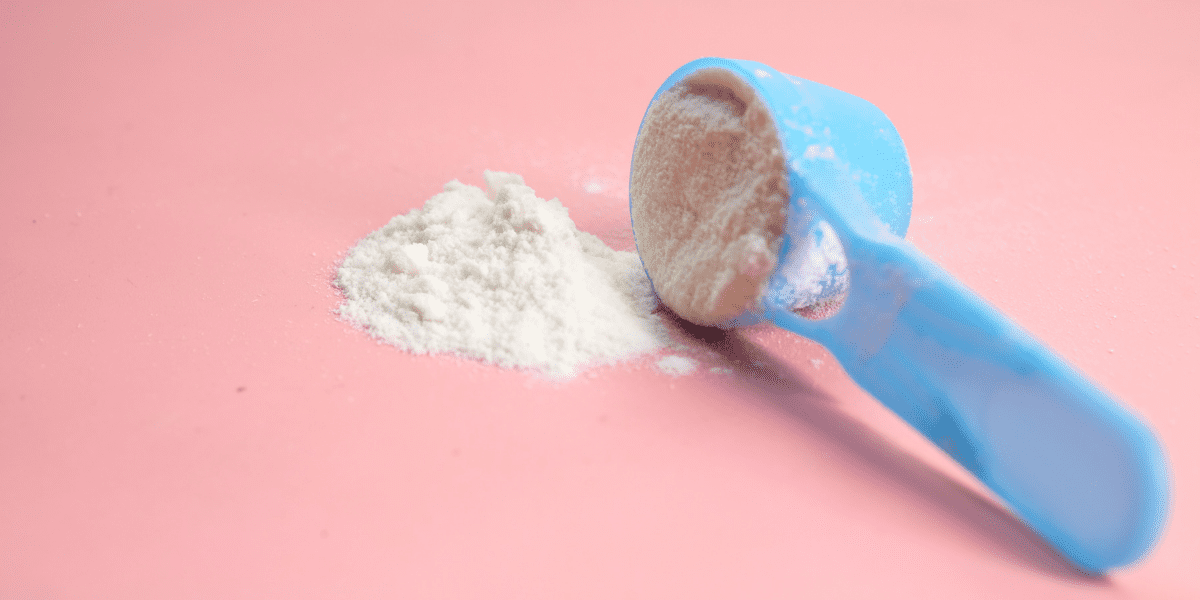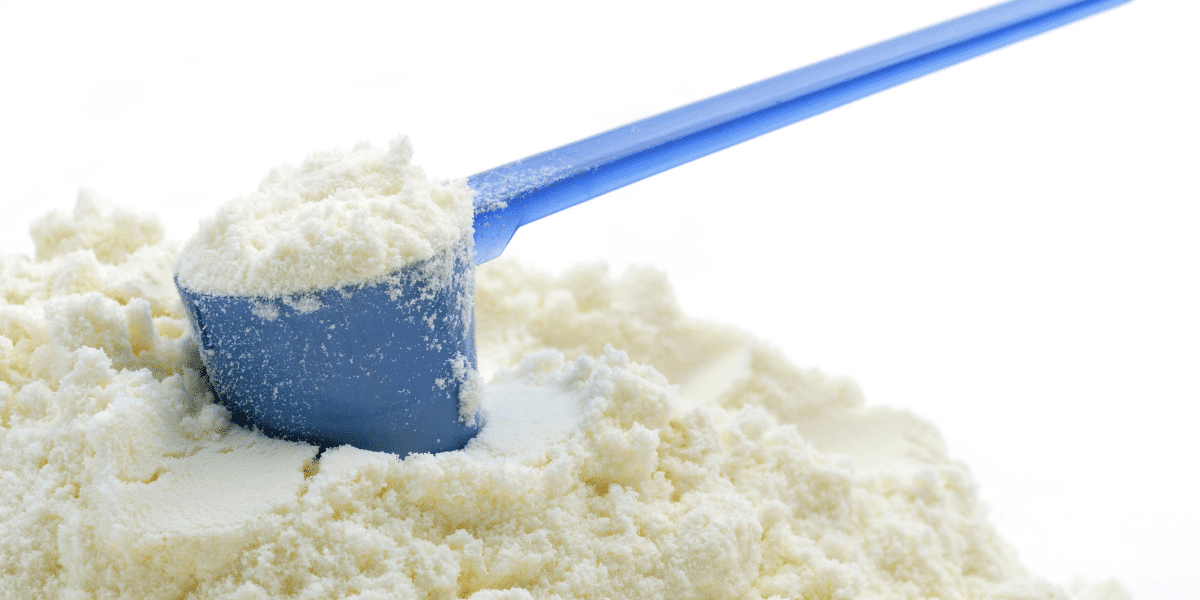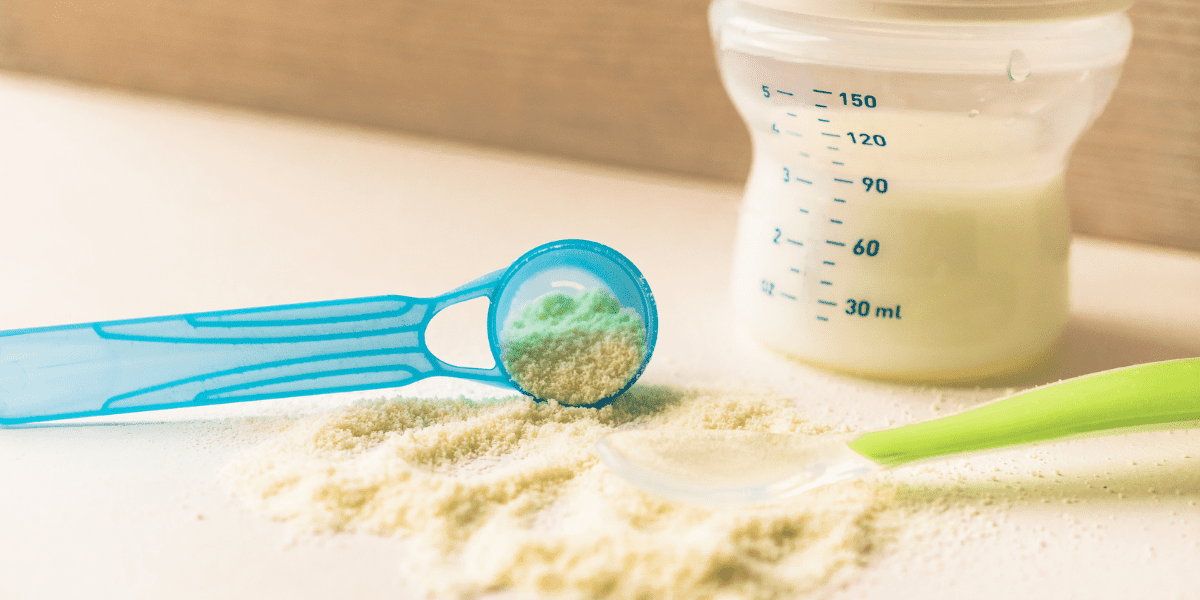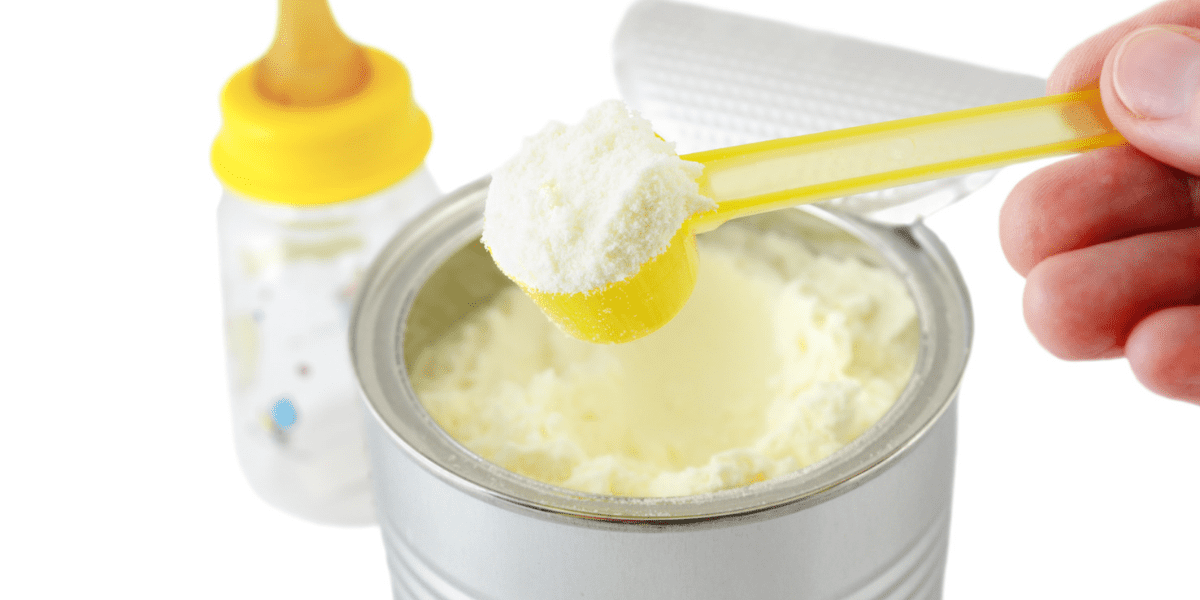If your baby has an intolerance to traditional formulas or is struggling to digest breastmilk there are specialty formulas on the market to help.
These specialist formulas are designed to help your baby feed more comfortably, aid digestion, and provide the nutrients that they need to meet developmental milestones.
As an Amazon Associate, I earn from qualifying purchases. The links below may be affiliate links. Please read my disclosure policy for more information.
What is Hypoallergenic Formula?
If you are worried that your baby may be allergic or have an intolerance to milk, whether it be your breastmilk or the formula you have started your baby on, you may need to look into a specialist formula.
The specialist formula is also known as hypoallergenic formula and provides an alternative to breastmilk and modified cow’s milk that is found in traditional formula.
The milk in the hypoallergenic formula has been hydrolyzed, or broken down, into small proteins. The process of breaking protein down into these very small pieces means that your baby is less likely to have an allergic reaction or show signs of milk intolerance.

For babies with intolerances, digestion issues, or who are suffering from colic, hypoallergenic formulas are beneficial.
If, however, your baby has a severe milk allergy, then you will need to buy a formula that is labeled ‘elemental’ and contains no protein but the main acids that are the building blocks for protein production.
Hypoallergenic milk still has all of the nutrients and vitamins your baby needs so you can rest assured they are not missing out by drinking specialist formula.
As your baby becomes used to digesting hypoallergenic formulas they may begin to tolerate a small amount of cow’s milk as the specialist formula is designed to decrease milk sensitivities.
For a brand to label its formula as hypoallergenic it must meet criteria set out by the American Academy of Pediatrics (AAP) which includes carrying out clinical trial studies.
Milk Allergies in Babies
Milk allergies can develop in babies when the immune system recognizes the protein found in milk as a bacteria or virus. When a baby’s immune system detects milk protein it can trigger an allergic reaction which can be seen in the form of swelling, rashes/hives, vomiting, runny diapers, or intense crying.
If you suspect that your baby is allergic to milk then you should seek medical attention straight away so a test can be performed. Usually, a skin-prick test is performed that will check for immunoglobulin antibodies that develop when there is an allergic reaction.
Allergies and intolerances can often be detected at around 3-6 months but, for some babe with severe allergies, this can be sooner.
Many babies grow out of food allergies and intolerances as they get older and their digestive system matures.
Generally, babies who are breastfed do not have allergies to milk proteins but they may have an intolerance.
Other babies may have lactose intolerance and would therefore be best with a specialist soy-based formula.
If you believe your baby to be lactose intolerant your doctor will be able to advise you on the best way to feed them.
Nutramigen is a good option for babies who are lactose intolerant as it is soy-based.

Reflux
If you notice that your baby is in distress when feeding or they are spitting or vomiting after feeding, they may be experiencing reflux rather than being allergic to milk.
Reflux or gastroesophageal reflux (GER) as it is fully known, occurs when babies cannot tolerate the proteins found in milk and formula. Symptoms of reflux are usually seen within the first three months of being born as the digestive system is still maturing.
Infant reflux occurs when the food babies are trying to digest travels back to the esophagus after reaching the stomach. Some reflux is normal for babies and will look just like the food they have swallowed but it has a sour smell.
For ongoing issues with reflux and signs that your baby is under-nourished because they are not eating enough, hypoallergenic milk may over some comfort and will allow your baby to feed normally.

Hypoallergenic Formulas
If you know your baby had an allergy or suspect a milk protein intolerance or GER, switching to a hypoallergenic formula should be considered. If you do want to continue breastfeeding you should seek the advice of a lactation consultant.
When it comes to hypoallergenic formulas or specialty formulas, there are many brands that meet the APP criteria. Make sure you take a full look at the list of ingredients before buying a certain formula and if you are unsure you can ask for medical support.
The most common brands of hypoallergenic formula on the market are Nutramigen and Alimentumxf.

Nutramigen
Nutramigen is usually prescribed for babies with a diagnosed cow’s milk allergy and is also bought for babies who are intolerant to milk proteins.
You should always seek the advice of a physician before starting your baby on this hypoallergenic formula.
There are many benefits of using Nutramigen for your baby, including:
- Good for babies with allergies and milk intolerances
- Can benefit babies suffering from colic
- Helps babies with infant reflux
- Can help alleviate gas
- Similar to breastmilk so easier to make the switch
- High iron levels
- Provides essential nutrients, including calcium, vitamin B, and zinc
- Available in powder form or ready mixed
- Available in 3 age-adapted formulas
- Soy-free so suitable for those with a milk soy protein intolerance
- Fast improvements when you switch
In addition to these benefits, Nutramigen stands out from other hypoallergenic formulas as it contains probiotics.
Probiotics can help improve the digestive system and help heal the gut. This means that in the future your baby may grow out of allergies and intolerances, particularly once they are weaning.
All of the above benefits will help to develop and support your baby’s nervous system and support strong brain development.
These benefits, alongside the fact that your baby will be able to thrive, means that you can rest at ease in the knowledge that your baby will meet its milestones.
In terms of affordability, Nutramigen is more expensive than other popular hypoallergenic formulas which may make it unattainable for some people.
Aside from the higher price bracket, the only other aspect of this formula you may need to consider is the taste. As specialty formulas are highly processed and milk proteins reduced, they can often taste very different than the milk your baby is used to.
This, however, is a problem with most specialist milk so, whichever you choose, you will need to go through a settling-in period for your baby.
Alimentum
If you are looking for a specialist formula that is less expensive than Nutramigen but is just as good for your baby, Alimentum is another popular option.
Like Nutramigen, Alimentum is a specialist formula that is used for babies with allergies, milk protein intolerances, reflux, and colic.
The benefits of using Alimentum are:
- Cheaper than Nutramigen
- Available in powder form or ready-made
- Enriched with iron to support growth
- Similar to breastmilk so easier to make the switch
- Quickly alleviates symptoms of intolerance (between 24 and 48 hours)
- Provides essential nutrients, including calcium, zinc, and magnesium
The key selling point of Alimentum is that it is a pre-digested formula in which the milk proteins are broken down so it is easier to digest for your baby.
As with Nutramigen, and most other specialist formulas, your baby may not enjoy the taste at first. If your baby does reject the drink, keep on trying and they will soon adapt to the stronger flavor.

The Best Specialist Formula
As you can see, the benefits of Alimentum and Nutramigen are very similar, with the only real difference being that Nutramigen contains probiotics.
Essentially, if the price of formula is not a concern then it will be a matter of choosing the formula that is best for your baby. You may find that, due to the strong taste, they prefer one over the other.
Switching Formulas
Whichever formula you decide is the best for your baby you must speak to a medical professional before you do so, whether that be your doctor or a feeding consultant.
This is to ensure that your doctor has checked over your baby’s symptoms to make sure there are no other concerns and that the formula you choose will meet your baby’s nutritional needs.
Whenever you switch formula you should introduce the new one gradually so that your baby gently adapts to the new flavor and can digest it more easily.
With hypoallergenic formulas, this process is essential due to the distinct difference in taste.
An example of a schedule for switching formula could be as follows:
- Day 1: 25% new formula and 75% old formula
- Day 2: 50% new formula, 50% old formula
- Day 3: 25% new formula, 75% old formula
- Day 4r: 100% new formula
You can alter this schedule if you feel your baby is taking to the new formula quickly or you need to speed the process upon medical advice.

